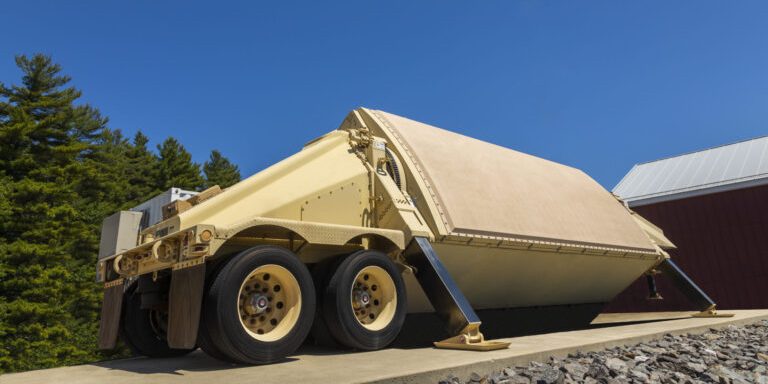The U.S. Department of Defense on Tuesday announced that the Missile Defense Agency (MDA) has awarded two contracts for the next phase of the Next Generation Interceptor (NGI) competition.
NGI is slated to eventually become the program to defend the American homeland against potential intercontinental ballistic missile (ICBM) attacks from nations like North Korea and Iran.
The NGI would take over the interceptor responsibility currently assigned to the Ground-Based Midcourse Defense (GMD) program. Boeing manages the GMD program out of Huntsville as the prime contractor for the Department of Defense. The company has led the industry team since the inception of the program in 1998 with engineers and experts who work in Alabama.
Boeing, up until Tuesday, led one of three teams competing in the NGI program. However, the other two teams were chosen as finalists; one of those teams is led by Lockheed Martin, while the second finalist team is led by a partnership between Northrop Grumman and Raytheon.
As reported by Yellowhammer News last month, the Northrop-Raytheon NGI program work is based in Huntsville as a colocation site for the two defense juggernauts.
Meanwhile, Defense News reported Tuesday that Lockheed Martin’s NGI work will also be headquartered in Huntsville. WAFF last year reported that an ongoing expansion at Lockheed’s Rocket City operations would, in part, prepare for an NGI award. “Hundreds of new jobs are promised” in Huntsville based on Lockheed’s NGI program success, per the local TV outlet.
Boeing had previously said the company winning the NGI competition would result in “1,000 new Boeing, supplier and other local jobs across the regional economy” for Huntsville.
The company on Tuesday told Defense News in a statement that it was “disappointed the U.S. Missile Defense Agency (MDA) did not advance our team to the next phase of competition in the development of the Next Generation Interceptor (NGI) competition. Our proposal to upgrade the current Ground-based Midcourse Defense (GMD) system leveraged the company’s 60-plus years of experience with missile and weapon systems to deliver an NGI solution that emphasized an innovative design with enhanced flexibility and modularity.”
“While it is premature to comment on next steps until we participate in the formal debrief session, it is important to note that today’s announcement does not impact our commitment to the MDA and to the mission of the GMD system,” Boeing added. “Our dedicated employees and partners will continue to manage the current system, and continually explore ways to support the warfighter in an evolving threat environment.”
That all three teams were planning on basing their NGI program efforts in Huntsville should come as no huge surprise, as the preponderance of the MDA is in Huntsville.
The agency’s contract award is structured to carry two designs into the technology development and risk reduction phase of the acquisition program to reduce technical and schedule risk, per a Pentagon release. The announcement also advised that Tuesday’s award will ensure NGI is an efficient and effective part of an integrated Missile Defense System (MDS) solution.
Sarah Reeves is leading Lockheed’s NGI program work.
“We are excited and proud the MDA entrusted Lockheed Martin to lead the development of this game-changing system that will greatly improve our nation’s security for decades to come,” she said in a statement.
Lockheed’s maximum contract (including flight test options through 2029) based on Tuesday’s award will be worth up to $3.7 billion, while the Northrop-Raytheon contract is worth up to $3.9 billion. The MDA specified that through fiscal year 2022, the total award is worth $1.6 billion.
Northrop and Raytheon currently provide the interceptor booster, kill vehicle, ground systems, fire control and engagement coordination for the country’s GMD system; their partnership leverages decades of experience in all aspects of missile defense, along with the latest in Agile processes, artificial intelligence and model-based systems engineering.
“We are honored to be selected by the MDA as prime contractor to develop the NGI system to protect our nation from advanced missile attacks,” stated Scott Lehr, vice president and general manager for launch and missile defense at Northrop Grumman. “There is a critical timeline for fielding this capability and our team brings together the industry’s top missile defense talent, agile design and manufacturing practices, and state-of-the-art operational factories to support the MDA and our nation’s defense against these evolving threats.”
“We are bringing together next-generation technologies—digital engineering and game-changing discrimination—for an extremely advanced capability,” added Bryan Rosselli, vice president of Strategic Missile Defense at Raytheon. “This team is building on unmatched experience, accounting for all 47 prior U.S. exo-atmospheric intercepts. With that knowledge, we are also embracing innovative ways to accelerate operational deployment while reducing risk.”
Lockheed on Tuesday also announced that Aerojet Rocketdyne has joined its NGI team as the propulsion provider. Aerojet Rocketdyne provides industry-leading kill vehicle and kinetic warhead propulsion to all of the MDA programs currently in production, including the GMD system. The company officially established its Defense Headquarters in Huntsville in 2016. It should also be noted that Lockheed earlier this year announced an agreement to acquire Aerojet Rocketdyne for $4.6 billion.
“Aerojet Rocketdyne’s proven propulsion has been successful on Ground-based Midcourse Defense system flight tests. We’re now applying decades of missile defense experience combined with multiple advanced propulsion technologies to support the Next Generation Interceptor program,” remarked Eileen P. Drake, Aerojet Rocketdyne CEO and president. “We’re proud to partner with Lockheed Martin to enable our nation’s defense with innovative, affordable propulsion.”
Aerojet Rocketdyne was also a member of the Boeing-led NGI team and was named last year as a supplier on the Northrop-Raytheon team. Aerojet Rocketdyne now has a lock on being a part of whichever proposal ultimately wins the NGI competition.
Sean Ross is the editor of Yellowhammer News. You can follow him on Twitter @sean_yhn













